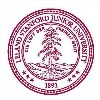美国斯坦福大学博士后职位
美国斯坦福大学博士后职位
Postdoctoral Fellow Position, Bacchetta Laboratory, Stanford University
The Bacchetta laboratoryhas an opening for a highly motivated, self-driven postdoctoral fellow with background knowledge in immunology and a strong interest in translational research and gene and cell therapy. The candidate will join the Division of Pediatric Stem Cell Transplantation and Regenerative Medicine at Stanford University School of Medicine and will work on one of two translational research projects aimed at providing innovative therapeutic approaches to treat Tregopathies:
(1) Optimizing a lentiviral-based transfer of the FOXP3 gene into CD4+ T cells as an adoptive Treg-like therapy (based on our previous publication, Passerini et al., 2013. Sci Transl Med), and comparing these transduced cells to Tr1 Treg-like cells generated using lentiviral-mediated IL10 gene transfer. Determining the efficacy and protective effects of the two Treg-like cell types in the context of mouse models of graft-versus-host-disease (GVHD).
(2) Developing a CRISPR-based gene correction of the FOXP3 gene in IPEX patient-derived hematopoietic stem and progenitor cells (HSPCs) as a personalized autologous stem cell therapy. The postdoctoral fellow will explore ways to further develop and optimize therapeutic constructs for gene delivery and test the function of genetically modified patient cells.
This is an excellent opportunity for a candidate who is interested in both translational research and state-of-the-art academic research. The postdoctoral fellow will participate in developing novel gene and cell based therapies not only for the genetic autoimmune disease, IPEX syndrome, caused by mutations in the FOXP3 gene, but also more broadly for immune-mediated diseases in which Treg immunotherapy would be beneficial (e.g., graft-versus-host disease). In this context, the laboratory works in close collaboration with Roncarolo laboratory, in which IL-10 producing Treg cells (Tr1 cells) are engineered using similar technologies and tested using humanized mouse models. This work will provide a unique experience that will be particularly valuable for trainees considering long-term careers in biomedical research and translational medicine.
Postdoctoral fellow responsibilities:
- Perform genetic modification of patient and healthy donor T cells and HSPCs and test for safety and efficacy using in vitro functional assays
- Test engraftment and phenotype of genetically modified cells in immunodeficient mice
- Write research manuscripts and grants to support research initiatives
- Participate in the science communication efforts at meetings, conferences, and local retreats
- Share and collaborate with other members of the laboratory to meet the goal of the team
Required applicant qualifications:
- PhD or MD in relevant biomedical field (e.g., immunology, cell biology, molecular biology)
- Excellent oral and written communication skills
- Ability to work independently as well as collaboratively with a team
- Extensive laboratory experience in cell biology
- Proven record of publication in reputable peer-reviewed journals
Additional desired (but not required) skills:
- Experience with flow cytometry and cell sorting
- Ability to process and culture primary human immune cells
- Expertise in gene modification using lentivirus or CRISPR
- Knowledge pertaining to humanized mouse models of disease
Required Application Materials:
- An updated CV
- Complete contact information for three references
- A cover letter describing past research experience (1-2 pages)
- Career goals and a statement of future research interest (1-2 pages)
The position is currently open and the selected applicant could start immediately or when his or her availability permits. To apply, please submit application materials to Rosa Bacchetta (rosab@stanford.edu) and/or Maisi Mayo (mmayo2@stanford.edu). For more information and to learn about the exciting translational research in the Bacchetta laboratory, please see the laboratory website at: http://med.stanford.edu/bacchettalab.html.

















